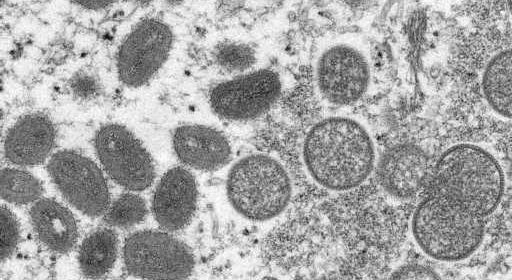Monkeypox isn’t widespread in Colorado, but state asks public to watch

Monkeypox is not widespread in Colorado, but the state health department is asking the public to keep an eye out for symptoms and pick up the phone if health officials call to warn you about potential exposure.
The Colorado Department of Public Health and Environment reported two presumptive monkeypox cases in May and three in June. All of those people had either traveled to countries where monkeypox is spreading more widely, or were in close contact with someone who did, state epidemiologist Dr. Rachel Herlihy said Wednesday. While the virus doesn’t appear to be spreading significantly in Colorado, public health leaders want to shut it down before it becomes entrenched in people or animals.
“We want people to be informed of what the signs and symptoms of monkeypox are,” she said. “The goal is to prevent the next generation of cases.”
Brief interactions without physical contact are unlikely to spread monkeypox, Herlihy said. High-risk exposures include skin-to-skin contact or sharing a household with an infected person, or handling items like towels and bedsheets used by someone with a monkeypox rash. The majority of the people infected in the current outbreak are men who have sex with men.
None of the people believed to have monkeypox in Colorado have been hospitalized or died, Herlihy said. A “handful” of people have been hospitalized in other states, and the fatality rate of this version of the virus is below 1%, she said.
Monkeypox typically causes flu-like symptoms and a rash, which can resemble pimples, Herlihy said. The rash can appear anywhere on the body, though people infected in the current outbreak have been more likely to report it in the genital or anal region.
People who notice an unusual rash or think they might have been exposed should talk to their health care provider, Herlihy said. Typically, the symptoms get better without treatment, though an infected person needs to isolate from people and pets until that happens, she said.
A vaccine can prevent symptoms from developing if a person receives it in the first days after exposure, Herlihy said. If a person is vaccinated more than four days after exposure, the odds of preventing the disease altogether are lower, but the shot still may reduce symptom severity, she said.
Scott Bookman, director of the state health department’s division of disease control and public health response, said the state has asked the CDC for about 100 doses from the national stockpile.
The CDC has reported 142 confirmed cases in 23 states and the District of Columbia. Worldwide, about 3,100 cases have been reported in countries where the virus isn’t normally found, with the highest numbers in the United Kingdom, Germany and Portugal.
Subscribe to bi-weekly newsletter to get health news sent straight to your inbox.
Source: Read Full Article